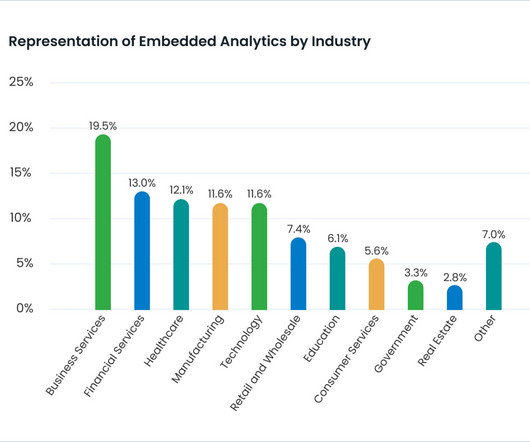Business Intelligence vs Data Science vs Data Analytics
FineReport
JULY 28, 2021
Good data can give you keen insights, convincing evidence to make informed decisions. By observing and analyzing data, we can develop more accurate theories and formulate more effective solutions. For this reason, data science and/vs. Definition: BI vs Data Science vs Data Analytics.














Let's personalize your content